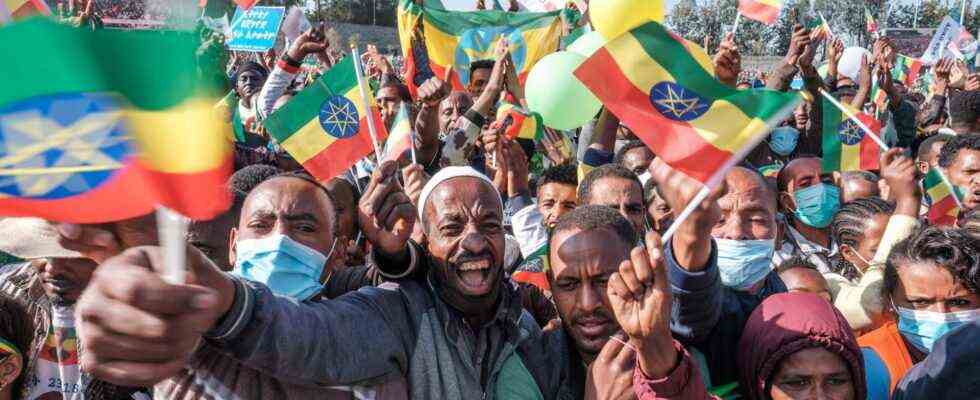Status: 11/22/2021 4:27 p.m.
The civil war in Ethiopia is also being fought on social networks: the warring parties incite people against each other via Facebook. Critics say the company is doing too little about it – and is simply overwhelmed.
At the beginning of the month the first anniversary of the start of the war in Ethiopia, national flags are flying in the capital Addis Ababa, the military showcasing their strengths and Prime Minister Abiy Ahmed gives a speech. He sounds that a pit has been dug in which the enemy will be buried – and not Ethiopia: “We will beat him with all our strength and our blood so that Ethiopia can rise again to glory.”
It was worded similarly in an entry on the head of government’s Facebook page. Facebook deleted the post because it was viewed as a call to violence – this was the first time that the company took action against an entry by the Prime Minister.
The Ethiopian journalist Zecharias Zelalem says that he uses the social network massively for his statements: Abiy informed the Ethiopian population about the invasion of Tigray on Facebook. Only then did he give a televised address.
Influencer smear campaigns
A bloody civil war has been raging in Ethiopia for a year, which began as a conflict between the government and the so-called People’s Liberation Front of Tigray. The arguments are fueled on social media.
Facebook is used by around six million people in Ethiopia. In the past few weeks in particular, activists close to the government have posted hateful messages on their pages, says Zelalem: He calls calls to kill civilians from Tigray and appeals to send them to concentration camps. The activists have hundreds of thousands of followers: “They seem to be coordinating their actions to target people from Tigray,” he observes.
The reporter compares the agitation with the messages that were broadcast on a radio station before the genocide in Rwanda: only the medium has changed.
Facebook lacks experts
Facebook is well aware of its own role in the conflict: the whistleblower Frances Haugen had made public that there are too few employees on Facebook for countries like Ethiopia to check posts in Amharic or other national languages. In a hearing before the US Senate, she said that the group was in conflict between making the platform more secure or maximizing income: Facebook’s own profit was always more important, she accused the group.
In some cases, dangerous online clashes have resulted in actual violence that injures and even kills people. Haugen referred specifically to the situation in Myanmar and Ethiopia.
A promise – and what became of it
Facebook had already praised improvement more than a year ago. But checking from Ethiopia is still too much for the group. With the deletion of Abiys post a sign should have been set, says Zelalem.
But shortly afterwards the content was back on the net: scarce a day later, the mayor of Addis Ababa, Adanech Abebe, made a similar statement on her Facebook page. She also called on the masses to bury the enemy. This post was not deleted.
Zelalem believes that Facebook wants to revamp its image – “but there is no concrete concept of how to deal with the problems in Ethiopia”.

